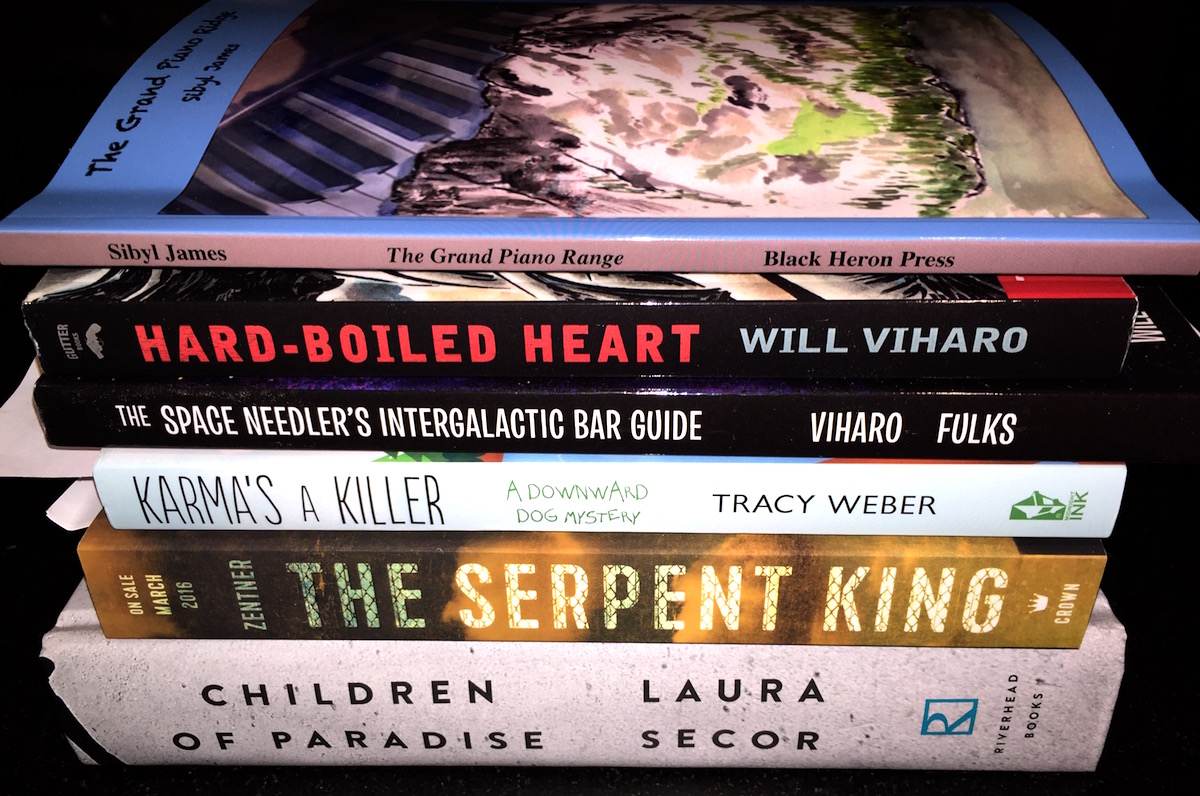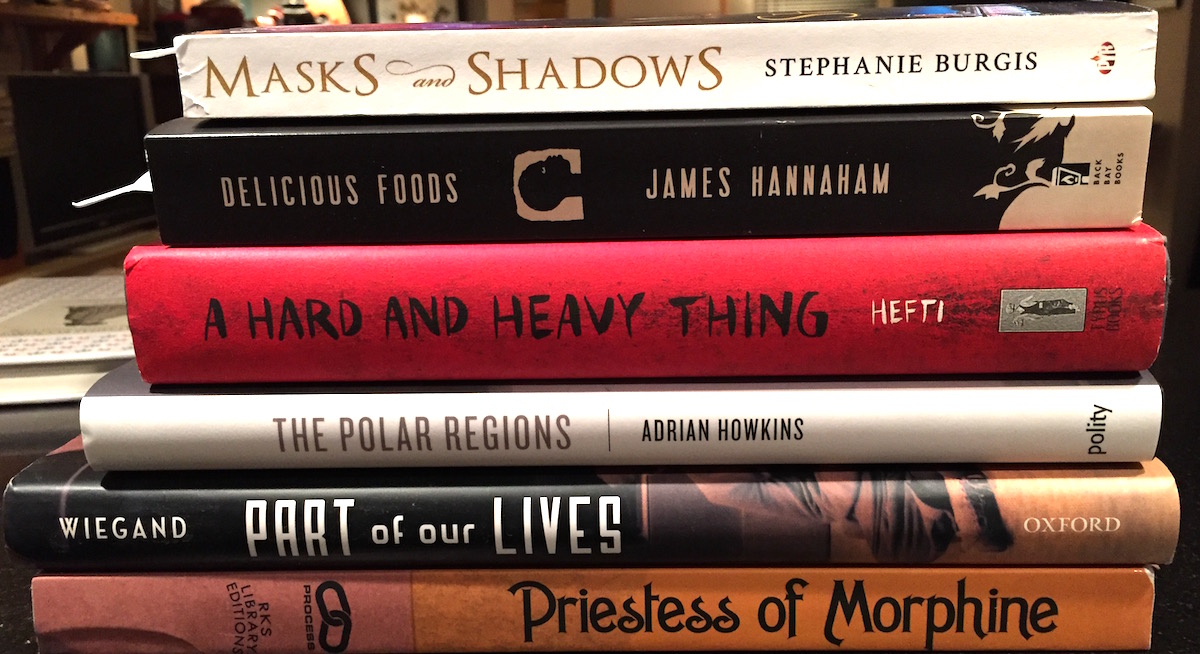Book News Roundup: It's 2016! Get published and get your fortune told
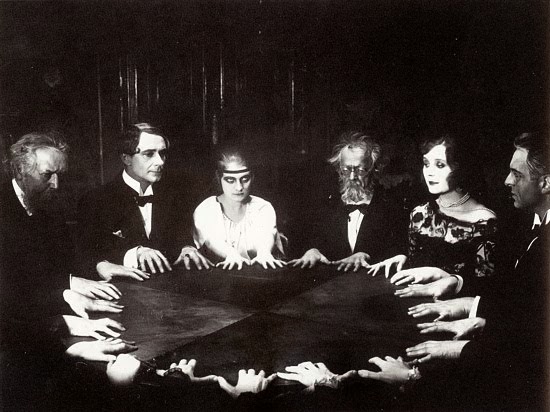
Here's what's going on in the Seattle book world right now:
Do you know a promising young writer? There's still time for them to apply to the brand-new Jack Straw Young Writers program. Press materials say that "Selected writers will take part in one-on-one mentoring sessions with professional writers, a live performance coaching session, and a studio recording session with vocal coaching." Any high school student in Seattle is eligible; applications are due by Friday, January 22nd.
Speaking of Jack Straw, have we raved about the writers that curator Karen Finneyfrock chose for the 2016 Jack Straw Writers Program yet? Soak this in: Anis Gisele, Ramon Isao, EJ Koh, Robert Lashley, Casandra Lopez, Kirsten Sundberg Lunstrum, Corinne Manning, Ruby Hansen Murray, Shin Yu Pai, Alison Stagner, Shontina Vernon, and Carolyne Wright. These are going to be some kick-ass readings: the thought of Koh, Pai, and Lashley sharing a stage makes our knees go weak.
This is your midpoint reminder that the Floating Bridge Press Chapbook Competition is still accepting entries through March 1st. The writer of the winning poetry chapbook will receive $500, their chapbook will be published, and they'll be the featured reader at a Floating Bridge event.
The new issue of Cirque: A Literary Journal for Alaska and the Pacific Northwest is available online and in print. It features a short story by Seattle author David Fewster, "The Poetry Slam," which is set in Seattle.
This morning, the Hugo House announced a fascinating new series that will be happening at the Sorrento: "Ask the Oracle" will feature writers using their own books as fortune-telling devices. Audience members will ask questions, and the writers will provide answers from the text of their books. They've got a great lineup for spring, including writers like Stacey Levine, David Schmader, Megan Kruse, Sarah Galvin, Anastacia Tolbert, and Kary Wayson. Sounds like a fun spin on the traditional reading. The first one is on February 8th.
Laid bear
Published January 12, 2016, at 12:01pm
The internet lost its collective mind over an 40 year-old Canadian novel featuring a woman having an erotic relationship with a bear. Why do bears and sex freak people out so much?
Dear Botfly
You are not a machine, but a mechanic
tooling out from under skin. And in
my head, you might take flight, alight
with chandeliers of sand. A man said
one is the loneliest number, but this
doesn’t square. I swore I’d shaken
you out, but my hair parted, and there
you were. Part of me, do you smart
with the sting of the repressed? I’m blessed,
but some day you’ll depart, a fingerwave
to your avuncular host. Then I’ll be lost.
Yours,
Another
You belong in Mineral School
Our thanks to Mineral School for returning as a sponsor this week. Mineral School is an overnight artist's residency situated in an old elementary school in Mineral, Washington. In the shadow of Mount Rainier, a residency there is amazing two weeks of focus while letting someone else take care of feeding you amazing food. Applications are due soon! Get yours in right away. Find out how on our sponsors page.
This week we have a piece of prose from Mineral School alumni Wendy Call.
It's sponsors like Mineral School that keep original content on our site day after day. They've joined in our campaign to make internet advertising 100 percent less terrible, and we're so grateful that they did.
A tiny sense of closure
Saturday, Spokane author Jess Walter quietly dropped a bomb on Twitter. He was asked about the podcast that he and Sherman Alexie started, A Tiny Sense of Accomplishment, which has not released any new episodes since October of 2015:
Thank you @di3hard ... Not sure about the podcast. Had to get back to our day jobs.
— Jess Walter (@1JessWalter) January 9, 2016We'll see. Finishing some work and then reassess. Promise if we quit for good we'll find a way to say goodbye. https://t.co/QNOdDDIdyN
— Jess Walter (@1JessWalter) January 9, 2016It would be a real shame if Tiny closed down for good. Alexie and Walter put on an excellent show together. They were funny and provocative, and they talked about writing in such an honest way that it completely demystified the process. (Seriously: if you want to write, you should listen to the complete run of Tiny. You'll learn more about the craft than you'd pick up in most MFA programs.)
This is not to say that Walter and Alexie don't have great reasons to close down the show. Podcasting is hard work, and it takes up time that would normally be spent writing. But I think most fans of Tiny would be thrilled if it popped up on a quarterly basis, or even twice a year. It was such a wonderful love letter from the writers to their fans; it would be a shame to lose the show entirely.
A singular talent, a life-saving artist who constructed a brilliant career, and a passionate reader: to call David Bowie one-in-a-million would be to seriously devalue his uniqueness. Maybe he was one-in-a-species, but he made us all feel like we could be better people. There's not a single dud on his top-100 book list, which was found and shared this morning by Lincoln Michel at Electric Literature. Also, the Seattle Public Library has put together a list of Bowie-related books for you. (Get a load of Bowie's wonderful pro-library poster, too.)
Your Week in Readings: The Best Literary Events from January 11 to January 17
MONDAY Your week of civic activism, Black Lives Matter, and a heavy dose of poetry begins at the Fremont branch of the Seattle Public Library with Floating Bridge Press's quarterly reading series An Evening of Poetry. This is Elizabeth Austen’s last Seattle-area appearance in her capacity as Washington’s poet laureate. (Read about our new poet laureate here.) Go and show her some love for all the hard work she’s put in as the public face of poetry. Other readers include Angela Belcaster and Von Thompson.
TUESDAY We have a real rarity tonight: I can’t decide between the two top readings, so I’m going to tell you about them both. First up, Sara Brickman features at the Round at Fremont Abbey. Brickman, a Seattle poet who headed east for graduate school, is making a rare local appearance with other poets, a cellist, and “live painters.” Brickman is a lively reader, and it’ll be good to catch up with her recent work.
Also tonight, Nick Licata debuts his new book Becoming a Citizen Activist at Couth Buzzard Books. I reviewed this one last week. Licata just left Seattle’s city council last week, and now he’s re-entering life as a private citizen. Be gentle with him.
WEDNESDAY Elliott Bay Book Company hosts a launch party for Seattle poet Emily Johnston’s debut collection, Her Animals. She’ll be joined by Drew Dillhunt, the associate editor at Her Animals’s publisher, Hummingbird Press. Seems like a good way to introduce yourself to a Seattle-area small publisher and support Seattle poetry in one evening.
THURSDAY It’s time again for Margin Shift, the Seattle poetry collective's reading series. Tonight’s readers are Eddie Kim from Seoul, Seattle poet Samar Abulhassan, and, up from LA, Cathy Linh Che. You won’t find a more geographically diverse bill in Seattle this week, and Margin Shift always puts on a good show.
FRIDAY Tonight’s best event is a talk titled “Black Lives Matter in Hip-Hop” at Town Hall Seattle. A panel of local musicians, including Wyking Garrett, Jace Ecaj, Nikkita Oliver, Suntonio Bandanaz, and Renaissance the Poet, will talk about gentrification in hip-hop and the local Black Lives Matter movement. This one is important.
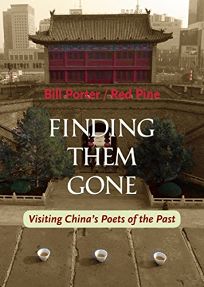
SUNDAY University Book Store closes out our week with “Cindy Safronoff's comparative biography of late 19th century feminist activists Mary Baker Eddy and Victoria Claflin Woodhull." Eddy believed in marriage as an institution. Woodhull was a proponent of free love. They often disagreed. Passionately. The book is titled Crossing Swords: Mary Baker Eddy vs. Victoria Claflin Woodhull and the Battle for the Soul of Marriage, and it sounds totally fascinating.
The Sunday Post for January 10, 2016
Bonfire of the Inanities
Where goes the style section, goes us all. Jacqui Shine examines the history of the "lighter" side of the news.
Women’s news was the opposite of important, with close ties to so-called yellow journalism. Joseph Pulitzer is credited with developing women’s news largely as a means of attracting new readers and, in turn, new advertisers. When Pulitzer bought the New York World in 1883, the paper had already had a “woman’s news” (as they called it) department for over twenty years. Women’s news, such as it was, included articles devoted to beauty, fashion, and domestic life. When Oscar Wilde was appointed the new editor of The Lady’s World in 1887, he noted that women’s periodicals took as their subject “merely what women wear,” not, as he hoped his magazine would, “what they think, and what they feel.” (He promptly changed the magazine’s name to The Woman’s World.)
Should Art Grants Be Awarded to Artists Who Don't Need the Money? (Worm Can Opened.)
The wonderful Jen Graves goes deep, and gets people on the phone, to talk about whether it matters that artists who don't need the money get grants intended to help support artists who need help. Yes, this is about David Shields, as Paul covered earlier. But it's also about this deceptively tricky question: should income be considered as a factor when deciding whether to award cash grants to artists?
The Blunt Instrument: What Is Fiction For?
Shhhh. There is no other literary advice column in the world but ours. This is something different. A fine, good something different.
Teju Cole once said, “A good novel shouldn’t have a point.” His own novel Open City illustrates this beautifully—I can’t boil it down to one or two abstractions; it’s about too many things. In the past couple of years I’ve read a few novels (or started and abandoned, as the case may be) that felt very top-down in their construction, as though the author decided what the point of the book was first, and then wrote it. I don’t care if authors do this, but as a reader, I want to feel like I’m discovering what the book is about as I read it; I don’t want to know from page one (or worse, sooner—sometimes all the blurbs and epigraphs make it clear what a book is about before you even start it).
Young Iris
John Updike writes about a biography of Iris Murdoch (an aside: I know I live in the moment because my mind keeps renaming him John Updog). Updike writes about writing about Murduch, and we must catalog all writing about Murdoch here. It's in our mandate.
Her published novels began sharp, terse, angular, and blithely enigmatic, on the French model of Queneau, and she ended as one of the most expansive and leisurely expositors since the Victorians. Her early mode achieved its masterpiece in “A Severed Head,” which I remember being passed around among young suburban couples in the early sixties as a species of news. This news—that we tend to love, that love is ambient and uncontrollable and comically, cruelly protean—never grew stale for her, though for the reader the filaments she spun from this centrifuge could feel, even in the best of her late books, like “The Sea, the Sea” and “The Philosopher's Pupil,” like cotton candy. Her characters make an exclusive diet of one another; she once defined happiness as “to be utterly absorbed in at least six other human beings.”
A Gay Ol' Time — Kickstarter Fund Project #1
Every week, the Seattle Review of Books backs a Kickstarter, and writes up why we picked that particular project. Read more about the project here. Suggest a project by writing to kickstarter at this domain, or by using our contact form.

What's the project this week?
A Gay Ol' Time. We've put $20 in as a non-reward backer
Who is the Creator?
What do they have to say about the project?
A Gay Ol' Time will be an approximately 110 page anthology of 48 portraits of LGBTQIA+ and Two Spirit Americans born in the 1800s, with accompanying short biographical quatrains. It aims to shed a little more light on these people history tends to forget, memorialize them in watercolor portraits, and invite its readers to research them further.
What caught your eye?
First, the illustrations, of course. Sjursen-Lien has a wonderful style, and is studying illustration and animation at CalArts.
But mostly, it's about representation. Mainstream history overlooks swaths of people who don't fit the traditional narratives. They help remind us that people outside the mainstream existed when most historians prefer to pretend they did not. Projects like this help to tell the stories of people mostly forgotten. Plus, it's just charming. Have you looked at the illustrations yet?
There's a nice array of rewards. There's a $5 reward that gets you a mention in the book, $10 for a PDF, $25 for a copy of the book, and $35 for a signed copy. There's limited rewards at $125 and $200 for prints and original art, but act fast on that $200 original art one — there are only 4 of 10 left, at this writing.
Why should I back it?
Have we mentioned the adorable artwork? For $25, a nice book with color artwork telling stories about people you've never heard about is really of fun. If you read the page, Sjursen-Lien is very clear about their (they/them is Sjursen-Lien's preferred gender pronoun) intent. For example, they picked quatrains to write about the historical figures "Because of the fact history is written by those in power, it can be very difficult to find information on minorities that is not skewed. Much information on people's sexual and romantic orientations is somewhat controversial because of this lack of information. Keeping this in mind, I wanted to be as true as I could to each person without danger of misinformation. Utilizing quatrains not only adds to a simple charm I wanted for this little book, but also allows things to be boiled down to simple, provable facts with multiple sources to cite."
That kind of attention to detail and research is to be applauded, and the project is both unique, and compelling. We think it's a great choice for our first backed project.
How's the project doing?
At 21 days to go, and double the original goal already pledged, the project is doing extremely well.
Do they have a video?
Kickstarter Fund Stats
- Projects backed: 1
- Funds pledged: $20
- Funds collected: $0
- Unsuccessful pledges: 0
- Fund balance: $1020
Former president Bill Clinton, who is in town for a fundraiser for Hillary Clinton's presidential campaign, just stopped by Elliott Bay Book Company.
Bill Clinton visited us today pic.twitter.com/44gVAvHWc0
— Elliott Bay Book Co. (@ElliottBayBooks) January 8, 2016This is not Clinton's first visit to Elliott Bay, though it is quite possibly his first since the store moved to Capitol Hill in 2010. Clinton visited Elliott Bay in Pioneer Square at least once while he was sitting president, and he did at least one signing there, for his (incredibly dull) memoir My Life.
While Clinton was browsing today, he introduced himself to a few people who happened to be browsing at an independent bookstore in the afternoon:
I just randomly met @billclinton and shook his hand while at @ElliottBayBooks, so that means I'm done for the day, right?
— Genevieve Iverson (@genevieve_ive) January 8, 2016And he recommended some books:
Bill Clinton recommended the books “Jacksonland” and also Seattle author James Neff’s “Vendetta” (about Hoffa & RFK) pic.twitter.com/dbfGrv6bgT
— Elliott Bay Book Co. (@ElliottBayBooks) January 8, 2016We have not yet read Jacksonland, but we can confirm Clinton's good taste with regard to Vendetta: I reviewed that one on its release back in August. It's a really good book.
Delicious nothingness
Published January 08, 2016, at 1:01pm
A new book offers up all the dish about the 2016 Republican presidential candidates. But does any of this salacious gossip really matter?
The Help Desk: Dun DUN Dun Dun Dun Dun DUN Dun Dun DUUUUUN
Every Friday, Cienna Madrid offers solutions to life’s most vexing literary problems. Do you need a book recommendation to send your worst cousin on her birthday? Is it okay to read erotica on public transit? Cienna can help. Send your questions to advice@seattlereviewofbooks.com.
Dear Cienna,
In my house, all I hear is my son humming the Imperial March. Stars Wars coming back is like the second coming (the seventh coming?) for him. He’s read all the Star Wars books, so I’m hoping I can expand his horizons a bit by some other science fictional universes. Any recommendations?
Jean, Shoreline
Dear Jean,
You're in luck: Because I have a womb deemed "clinically resentful," I've resolved in this new year to be a better parent to other people's children in lieu of trying to fashion one myself. Think of me as a well-endowed, biblio-centric wet nurse! I am figuratively leaky with ideas.
Here are a few: Dune, The Dying Earth, the Shannara novels, and the Wrinkle in Time quintet. Those should keep your son busy for 2016 and if not, huffing paint will! (HAHAHA, JK. Don't let your child huff paint, Jean – unless you do it as a dare to teach him a lesson about the stupidity of accepting dares.)
As a bonus, here are a few other parenting tips for you, from practiced non-parent to parent:
At dinner, do not allow your child to eat directly from the can. Encourage him to use a bowl, instead (i.e. a fancier form of can).
Avoid making direct eye contact while saying, "I love you" lest your child develop an over-inflated sense of self. It's better to always look just beyond his right shoulder. Then, if/when he accomplishes something noteworthy with his life, he will have earned the combination eye contact and praise.
KISSES,
Cienna
Announcing the Seattle Review of Books Kickstarter Fund
Each week in 2016 we are going to invest $20 in a Kickstarter project. On Saturdays, starting tomorrow January 9, we'll be reporting on the Kickstarter we back, and how the fund is going.
That gives us 52 Saturdays in 2016, so the fund is 52 x $20, or $1040. If a Kickstarter we back fails, we'll put that $20 into another project, allowing us to increase our pledges if we deem a project worthy.
Why are we doing this? We're in a new age of publishing. Kickstarter is sometimes self-published authors, but sometimes it's boutique publishers. Sometimes it's poets trying experiments, sometimes it's comic artists trying to use money to create space in their life to work. We are big fans of small independent publishing, and we wanted to find a way — even if it's modest — to support this scene.
We hope you follow along, and maybe inspire you to invest some money in projects that look interesting to you. Let us know if you do.
Here's some anticipated questions answered:
OMG, please cover my Kickstarter!
No guarantees, but please tell us about it. Email kickstarter at this domain. Please keep in mind we're only going to be backing projects related to publishing in some way. Projects unrelated to publishing will be ignored. But comics! We're into you! If you're not in the "publishing" category, you still count.
You'll be getting a ton of rewards!
We'll be backing at a non-reward level. We want all of the money to go to the creators.
What's your account on Kickstarter?
kickstarter.com/profile/seattlereviewof
Does the project have to be from Seattle?
No, but it certainly helps if it is.
Are you just trying to pick winners?
No, we're trying to find projects we think are interesting, or doing worthwhile projects. Some of these will be popular projects, no doubt, but we hope to back lots of smaller projects as well, doing our part to bring attention to neat projects that may be flying under the radar. We're not scared to back projects that might fail, but of course, we hope the money goes to the creators.
What are you looking for?
A certain level of professionalism, a dedication to craft and experimentation, a spirit of artistic adventure, a bit of verve and daring is nice to see. We like projects that are likely to deliver if successful, and seeing a nicely prepared project is a good signal for that.
And, of course, we're looking to highlight projects that may not get much attention. Maybe the creator could use a little marketing boost. We hope that being on the site here will help, in some small way.
Only Kickstarter? Why not IndieGoGo?
We'll consider any crowdfunding project. Personally, we like that Kickstarter forces creators to reach a minimum before a successful funding. In fact, we think it's crucial to the success of projects. It helps creators focus more clearly, and learn to promote themselves more creatively, and it's a conceptual proving ground — after all, if you can't convince your audience your thing should exist, then there's a possibility that it shouldn't. But, we've seen some important, and interesting, projects on other sites, so although Kickstarter is our default, a good project on another platform is certainly eligible for consideration.
So tune in here tomorrow, and every Saturday, around 9am, and let's see if we can't explore some cool projects together.
Get ready for this year's APRIL Festival
This afternoon, the APRIL Festival (it stands for Authors, Publishers, and Readers of Independent Literature) announced the schedule for their fifth annual celebration of small-press writing and reading, and it looks pretty goddamned spectacular. As previously announced, the writer-in-residence for this year’s APRIL is Jenny Zhang, a talented poet and wonderful essayist out of Brooklyn. Zhang’s star is on the rise, and her role as writer-in-residence will undoubtedly give the festival some national prominence.
The Festival has for the most part done away with its series of earlier “happy hour” readings at bars, instead opting for one firework-filled event per night. You can read the whole schedule here, but highlights include an opening night party with Zhang, Alejandro de Acosta, Sara Jaffe, and cartoonist Kelly Froh; a “fireside chat” from poet Cedar Sigo; a new edition of the popular APRIL game show “A Poet, a Playwright, a Novelist and a Drag Queen” hosted by — there’s no gentle way to put this — me, and featuring EJ Koh, Sara Porkalob, Brian McGuigan and Mal DeFleur; David Schmader hosting “a live video essay about writers on film"; and the usual enormous all-day book fair at the Hugo House.
In addition, there’s a big 5th anniversary bash featuring returning APRIL readers Ed Skoog, Elissa Ball, Maged Zaher, Robert Lashley, and Sarah Galvin and new APRIL readers Leena Joshi, Anastacia Renee Tolbert, Hannah Sanghee Park, Bernard Grant, and, as we announced yesterday, Jessica Mooney.
Plus, as the kids say, more!
This is a very interesting schedule; some of the frivolity of past APRIL Festivals isn’t readily apparent, and they’ve even teamed up with the Bagley Wright Lecture Series on Poetry for the Sigo reading, which is the kind of mainstream cultural acceptance that would have been unthinkable back in APRIL’s punky first year. This is exciting stuff; the festival is growing up and developing a sheen of respectability while still throwing a drag queen or two into the mix. It’s the same old APRIL Festival, just a little more, you know, APRIL-er.
This year’s APRIL Festival will run from Tuesday, March 15th to Sunday, March 20th this year. Start planning your schedule now.
KUOW has the news that our state's poet laureate for the next two years will be Tod Marshall, a professor at Spokane's Gonzaga University. You can find an audio sample of Marshall's work on KUOW's site. You can also find more samples of Marshall's work at the ever-indispensible Poetry Foundation. "Describe Turner to MLK" combines a harrowing eye injury with race and history in a way that I'm not sure is entirely successful, but it is certainly ambitious. "The Book of Failed Descriptions" is likewise ambitious — a long poem that combines fatherhood (a common theme in his work) with nature and mythology. He writes often about fishing, and about injuries to children, and nature.
We wish Marshall the best of luck as poet laureate. He is the state's fourth laureate, and he follows on the heels of two poets — Kathleen Flenniken and Elizabeth Austen — who were tireless advocates for poetry. Both Flenniken and Austen appeared in countless readings, classes, and public appearances during their tenures. They advocated for Washington writers, and for the importance of poetry in the public space. Marshall has a lot to live up to in his new role.
Portrait Gallery: Ru Freeman
Each week, Christine Larsen creates a portrait of a new author for us. Have any favorites you’d love to see immortalized? Let us know
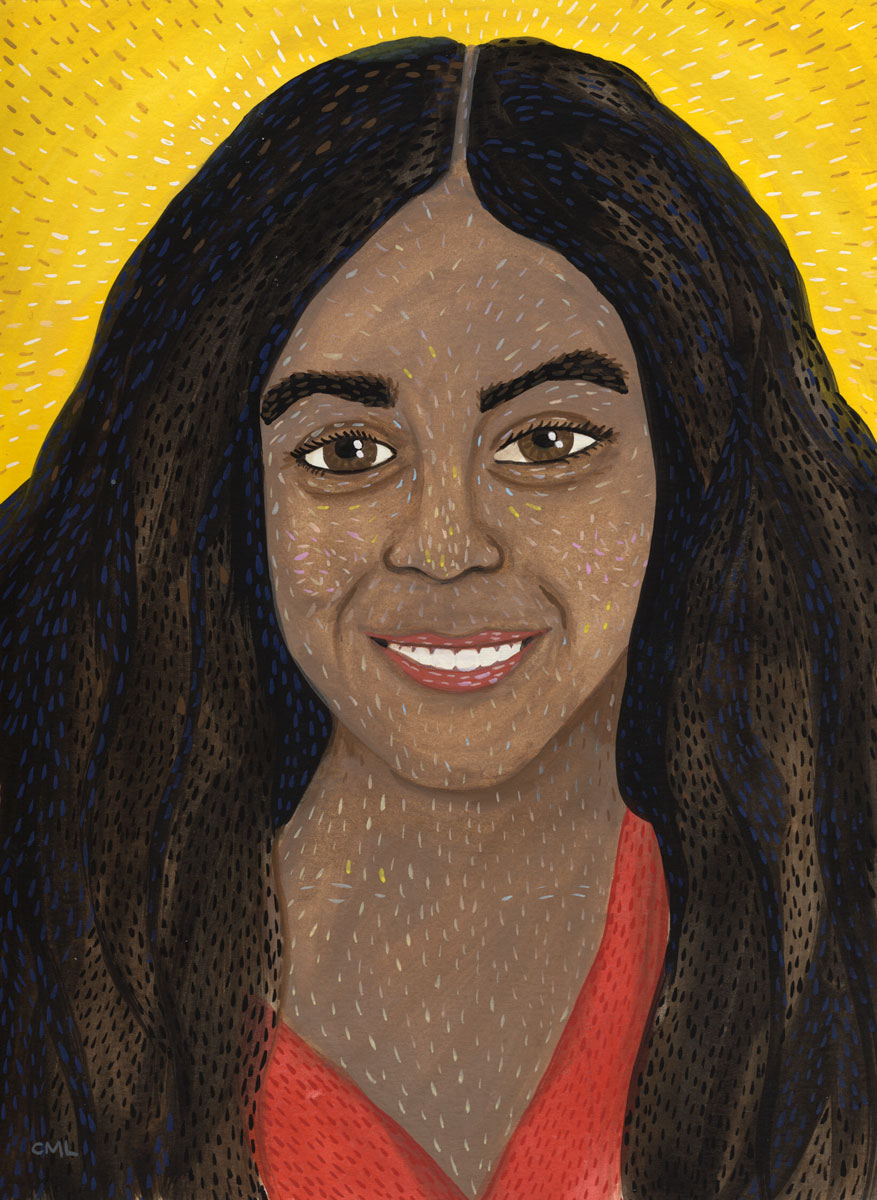
Ru Freeman appears tonight at the Elliott Bay Book Company to talk about Extraordinary Rendition: (American) Writers on Palestine, which she edited. Appearing with her will be contributing writers Tess Gallagher, Peter Mountford, and Alice Rothchild.
Emma Watson is starting a feminist book club.
Hi Team, ❤️ I want to start a feminist book club but so far have only brainstormed 'Feminist Book Club' and 'Emma Watson Book Club'.
— Emma Watson (@EmWatson) January 6, 2016I am almost certain there is a more inspiring name out there.... Does anyone have any thoughts ?! #Emma'sBookClub
— Emma Watson (@EmWatson) January 6, 2016I've decided to go with 'Our Shared Shelf'. @emilyfabb - I absolutely loved this. Thank you, thank you x
— Emma Watson (@EmWatson) January 7, 2016Thank you to everyone who came up with ideas and suggestions. That was VERY cool of you all. More info coming soon... Xxx
— Emma Watson (@EmWatson) January 7, 2016Thursday Comics Hangover: The know-it-all
Paul Tobin and Alberto J. Alburquerque’s comic Mystery Girl, now on its second issue, is an absolute delight so far. Here’s the little blurb at the beginning of each book that explains the premise:
Trine Hampstead knows everything. No mystery is too small or too weird for London’s premier sidewalk detective — and she truly knows it all, from your most personal secrets to the details of the deepest, most incredible conspiracies. The only thing Trine doesn’t know is how she knows everything.

Mystery Girl’s plot is unfolding slowly; Trine is heading to Russia to unravel a complex mystery involving a mammoth, even as her friends are getting mixed up with trouble that involves a creepy hitman.Tobin wisely puts the emphasis on Trine’s characterization in the first two books of the series — her sweetness is as much of a draw as the book’s central mystery at this point.
Alburquerque’s art is reminiscent of comics great Ernie Colón, which is to say he combines a lot of detail with cartoonish faces that display a range of emotions. Occasionally, his anatomy needs work — a chin appears to melt off a character’s face mid-conversation, a woman’s rib cage seems to turn boxy and lumpen — but each of his expressive characters look like unique human beings with inner lives and distinct backgrounds, so I’m inclined to forgive him the rare lapse in anatomical mindfulness.
Mystery Girl feels like a combination of the podcast Mystery Show, the Encyclopedia Brown books, and a Zadie Smith novel. You want to bathe in the world of the book, in part because the scale feels exactly right. Sure, Trine is leaving the relative comfort of her London sidewalk detective business to head to Russia, but the stakes feel relatively modest. Just because Trine knows the solution to every mystery presented to her doesn’t mean that she knows everything. Omniscience does not solve all your problems; sometimes context is what matters most.
